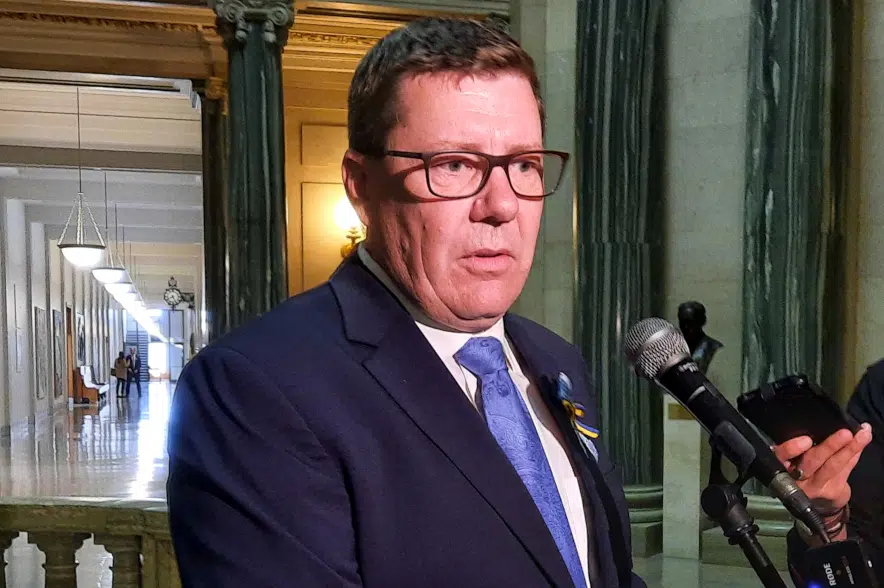As Saskatchewan’s government spends hundreds of thousands of dollars hosting a pavilion at COP28 to tell the world how sustainable the province’s industries are, those industries are getting hit with more regulations back home.
This week, the federal government announced new methane regulations as well as an oil and gas emissions cap.
“Name me another nation around the world that has both a carbon tax and a cap-and-trade system imposed on it,” Premier Scott Moe said Friday from Dubai.
“This is a very, very slippery slope, I would say, and a dangerous situation that the federal government is venturing into here, where ultimately what they are putting at risk is our Canadian energy security by imposing this many regulations in what is one of the cleanest-producing energy production systems in the world.”
Moe said the regulations are problematic for the industries and the provinces weren’t consulted about them beforehand.
“Our energy minister had a five-minute phone call with his counterpart, (who) would not only share none of the details with respect to the policy that was coming forward but wouldn’t even share the date or the time on when they were going to announce it,” said Moe.
The premier said he tries to work with the federal government, but it needs to answer the phone.
Much of the talk in the final phase of the conference has been about countries potentially hammering out an agreement to phase out fossil fuels – something Moe thinks everyone should be concerned about. He said it isn’t possible in the short term.
“In Canada’s case, the federal environment minister does not have the jurisdictional authority to sign anything with respect to phasing out or increasing fossil fuel development, as energy production (and) natural resource production falls squarely in the jurisdiction of the provinces,” said Moe.
As the conference winds down, Moe said he’s quite satisfied with the conversations that have been happening at the Saskatchewan pavilion.
“I don’t think this is something that we would be able to do each and every year, but we were able to do it this year, and we chose to do it,” said Moe.
“I think it is going to serve the exposure of Saskatchewan industries very, very well on the world stage, and move us a little bit further down the line on explaining to our fellow global citizens that Saskatchewan is not only producing the opportunity for food and energy security for your country but doing so in a very environmentally sustainable way.”
Moe said Saskatchewan often attends the COP conference, but the province decided to do the pavilion this year, in part, because of a conversation he had the last time he was in the UAE.
“We had talked quite openly about the fact that they were going to be bringing in not only the energy industry (and) the oil industry, but the nuclear industry to have sustainability of production in various areas of the world,” the premier said.
Moe said he talked to officials at that time about Saskatchewan’s story around uranium mining, production and supply but also about net-zero oil and sites reducing their methane emissions.
The conference runs until Tuesday in Dubai.











